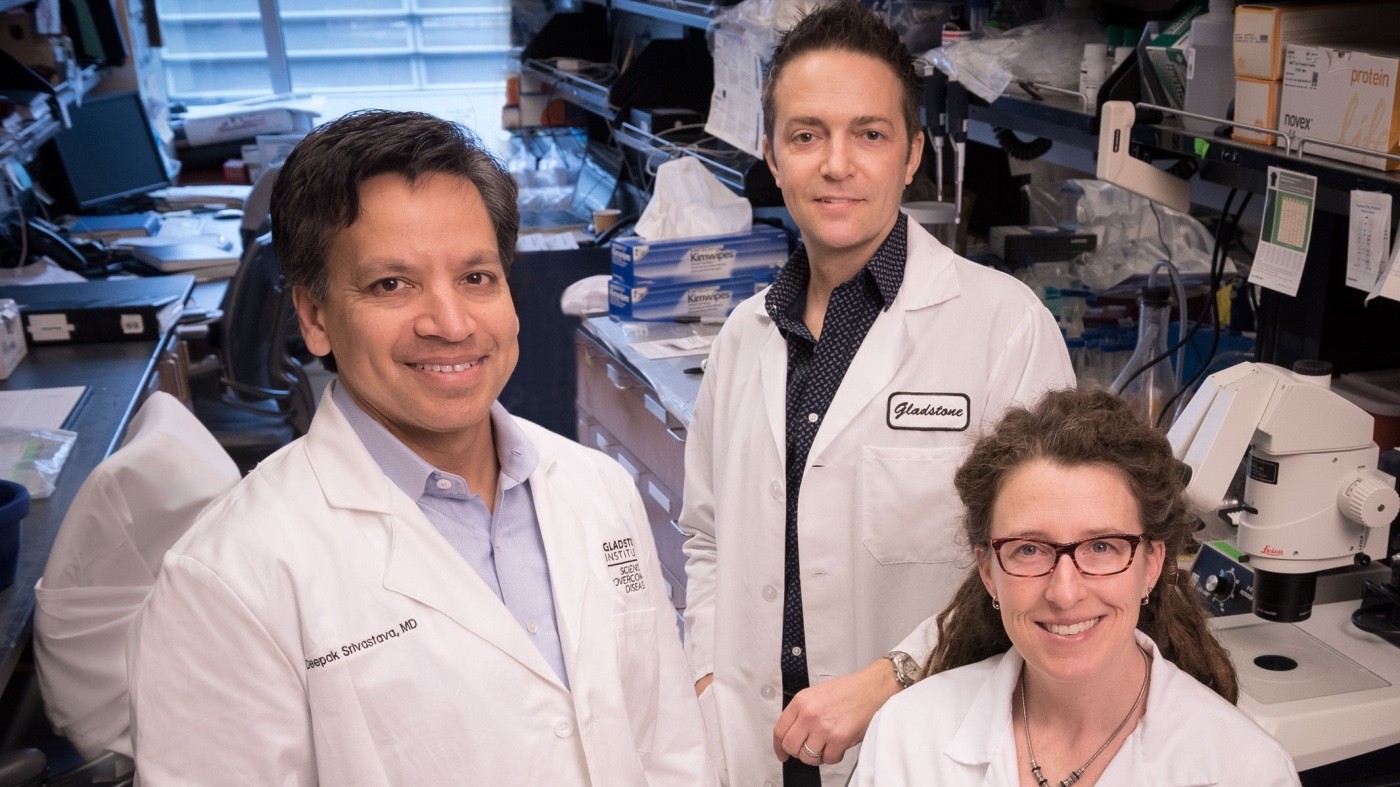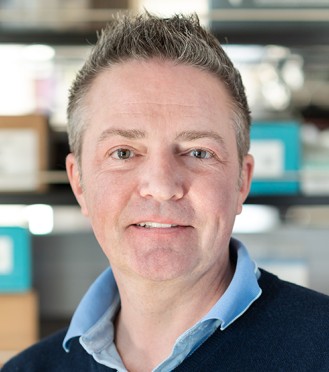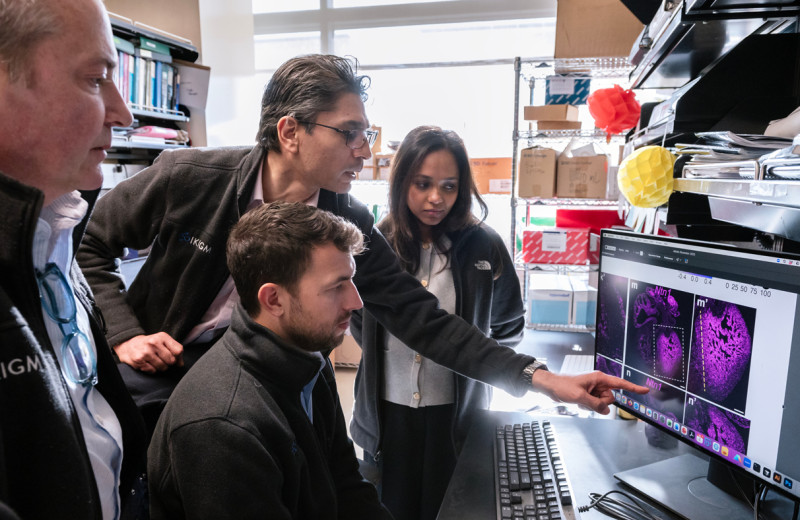Gladstone NOW: The Campaign Join Us on the Journey✕

Deepak Srivastava, MD, Benoit Bruneau, PhD, and Katherine Pollard, PhD, have renewed funding from the National Institutes of Health to continue their research on congenital heart disease. [Photo: Chris Goodfellow, Gladstone Institutes]
Gladstone has received funding from the National Institutes of Health to continue and expand two exciting projects in cardiovascular research. The funding, totaling more than $6.8 million, supports two teams of scientists and their research on congenital heart disease.
“Congenital heart defects are the most common birth defect and a leading cause of death in children. We have assembled teams of researchers with unique expertise here at Gladstone and other institutions to tackle this problem,” said Deepak Srivastava, MD, director of cardiovascular research at Gladstone. “The renewed funding for this important project, and the newly obtained funding for a second complementary project, will help to ensure that we can continue our research to better understand and eventually cure or prevent these defects.”
The two projects are facets of the National Heart, Lung, and Blood Institute’s Bench to Bassinet Program, a major effort aimed at learning more about how the heart develops and why children are born with heart problems. This large program aims to examine heart development from many angles, including basic laboratory research and clinical research. This information will be used to develop new ways to help infants, children, teenagers, and adults born with heart disease.
The first project takes an integrated approach to understanding how the heart forms. With cutting-edge technology in genomics, the teams will study how mutations in the heart fit into the overall network of proteins and RNAs that control the genes that allow the heart to develop. They will focus on how those genes, from different parts of chromosomes, work together to determine what type of heart cells will be made, and how these mechanisms are disrupted by gene mutations that cause congenital heart defects. By examining these mechanisms, they will learn how the whole system works together to form the heart. This team includes Gladstone scientists Benoit Bruneau, PhD, Katherine Pollard, PhD, and Dr. Srivastava.
“Over the years, we have learned a lot by looking at individual factors,” said Dr. Bruneau. “But to really understand how the heart works, we need to look at the entire system at once, which we hope to do with this project.”
The second project is a multi-center effort involving Dr. Srivastava and scientists at Gladstone, the University of California, San Francisco, and Stanford University. The project focuses on defects in the development of the early heart, including hypoplastic left heart syndrome and bicuspid aortic valve disease. The team is taking advantage of a surprising connection between these heart defects and problems in the development of the brain. Although it might seem counter-intuitive, mutations associated with heart defects can also result in anomalies in the brain. By bringing together a team of cardiologists, neurodevelopmental experts, geneticists, and computational biologists to evaluate these problems together as a unique “syndrome,” they hope to better understand how both problems occur and whether they share similar mechanisms.
“We are excited about the renewed funding and the possibility that we can make a significant contribution to our knowledge of congenital heart disease,” said Dr. Srivastava. “Hopefully, our new knowledge will speed up the development of new diagnostics and therapies.”
Support Our COVID-19 Research Efforts
Gladstone scientists are moving quickly to respond to the coronavirus outbreak. Help us end this pandemic.
Disrupted Boundary Between Cell Types Linked to Common Heart Defects
Disrupted Boundary Between Cell Types Linked to Common Heart Defects
Gladstone scientists identified a cellular boundary that guides heart development and revealed how disrupting it can lead to holes in the heart’s wall.
News Release Research (Publication) Congenital Heart Disease Cardiovascular Disease Bruneau LabScientists Pinpoint a Key Gene Behind Heart Defects in Down Syndrome
Scientists Pinpoint a Key Gene Behind Heart Defects in Down Syndrome
After decades of mystery, Gladstone researchers identify a gene that can derail heart formation—and show that fixing it prevents the problem in mice.
News Release Research (Publication) Congenital Heart Disease Cardiovascular Disease Pollard Lab Srivastava Lab AI CRISPR/Gene Editing Stem Cells/iPSCsCIRM Awards $7.5 Million in Discovery Grants to Gladstone Investigators
CIRM Awards $7.5 Million in Discovery Grants to Gladstone Investigators
Two ambitious research projects led by Gladstone investigators are boosted by funds from the California Institute for Regenerative Medicine.
Grants News Release Congenital Heart Disease Cardiovascular Disease Bruneau Lab Conklin Lab CRISPR/Gene Editing Human Genetics Regenerative Medicine






